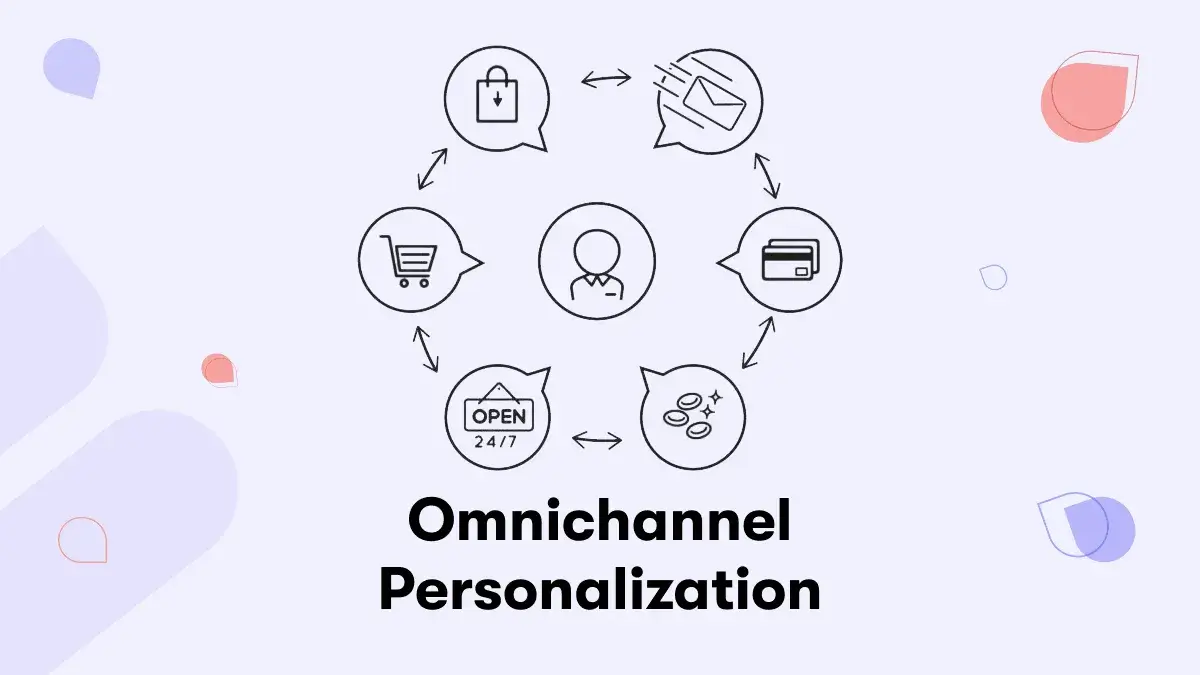The Future of AI Applications in Customer Experience
The role of Artificial Intelligence (AI) is becoming increasingly pivotal, especially in shaping the future of customer experience. As businesses strive to meet the growing expectations of consumers, AI applications are emerging as powerful tools that not only enhance customer interactions but also drive efficiency, personalization, and trust. Now, let’s delve into the transformative potential of AI in customer experience, exploring how it will evolve to meet the challenges and opportunities of tomorrow.
The Future of AI Applications in Customer Experience
AI Will Become More “Human”
One of the most significant trends in the future of AI applications in customer experience is the development of Emotional AI. This type of AI can recognize and respond to human emotions, creating more natural and authentic interactions. With the ability to analyze body language, voice tone, and facial expressions, Emotional AI can better understand the mood of customers and adjust communication to create closer interactions.
For example, an AI chatbot, as part of AI applications, could recognize when a customer is frustrated based on their tone of voice or the words they use and then change its approach by offering solutions to ease the situation or even transferring the conversation to a human support agent. This not only improves customer satisfaction but also builds trust and long-term relationships between businesses and customers.
Comprehensive Automation and Seamless Integration
In the future, AI will not be limited to just a few standalone applications but will become an integral part of every aspect of the customer experience. These AI applications will be seamlessly integrated into CRM, ERP systems, and e-commerce platforms, creating a truly omnichannel experience where every customer interaction is recorded and automatically processed – from product inquiries to complaint resolution and post-sale support.
For instance, when a customer contacts customer service through any channel (chat, email, phone), AI will be able to access the entire history of transactions, personal preferences, and previous interactions to provide appropriate solutions immediately. This not only speeds up response times but also ensures consistency across all aspects of customer service.

The Emergence of Specialized Virtual Assistants
Current virtual assistants are already an essential AI application capable of handling basic tasks, but in the future, they will evolve into Specialized AI Assistants. These assistants will not only help answer simple questions but also perform more complex tasks such as shopping planning, personal finance management, or even making strategic business recommendations based on data analysis.
Explore AI-Driven Test Automation
Businesses can deploy these virtual assistants to provide high-level consulting services to customers. For example, a bank might use an AI virtual assistant to analyze a customer’s personal finances and offer investment, savings, or loan advice in an automated and personalized manner. This enhances service value and creates a significant competitive advantage AI applications..
Enhanced Security and Privacy with AI Applications
As AI continues to develop rapidly in customer experience, security and privacy will become top priorities. AI will not only help protect customers’ personal data but also play a crucial role in detecting and preventing cybersecurity threats. These AI applications will have the ability to continuously monitor and analyze behavior to detect signs of intrusion or suspicious activities, enabling timely protective measures.
Additionally, AI will help enhance customers’ control over their data. Customers will be able to request AI to provide reports on how their data is being used or even request the deletion of their personal data if they do not want it stored. This will create a trusted environment where customers feel more secure when interacting with businesses.

Absolute Personalization
In the future, AI will advance further in personalizing customer experiences, to the extent that every aspect of interaction will be customized for each individual. This means that each customer will receive products, services, and marketing messages entirely tailored to their needs, preferences, and behaviors, creating an optimal user experience powered by AI applications.
For example, future e-commerce platforms will not only recommend products based on previous transactions but also on real-time data such as geographic location, weather conditions, and even the current psychological state of the customer. When a customer opens a shopping app, they will see an interface specifically designed for them, with products and services arranged in a way that best suits their personal preferences through sophisticated AI applications.
Personalizing Customer Experience with AI
Analyzing Customer Data
AI applications offer the capability to analyze customer data at a profound level, from sources such as shopping behavior, online interactions, to feedback from customer service channels. With the ability to analyze Big Data, AI can build a detailed profile of each customer, including their preferences, needs, and shopping habits.
For example, an AI system in the online retail industry can analyze millions of shopping transactions to identify purchasing patterns of various customer segments. Through this, businesses can make appropriate product recommendations, predict demand, and adjust marketing campaigns more effectively.

Additionally, AI allows for real-time customer segmentation based on the latest data. This means that a customer can be placed into different groups depending on their recent actions, helping businesses personalize marketing campaigns and increase conversion rates.
Personalized Product and Service Recommendations
AI uses Machine Learning algorithms to analyze customers’ interaction history and provide product or service recommendations that they may be interested in. The longer these recommendation systems are in operation, the more accurate and personalized the suggestions become.
A prime example is Netflix, where AI recommends movies and shows based on users’ preferences and viewing habits. Not only does AI predict individual preferences, but it also supports businesses in cross-selling and up-selling by suggesting related products or upgraded versions of products that the customer is interested in.
Moreover, AI applications optimize the omnichannel experience, ensuring that no matter which channel the customer interacts through (website, mobile app, email), they receive product recommendations and messages that match their behavior and preferences. For example, a customer who abandons a shopping cart on the website may receive a reminder email with product images and a discount code to encourage the purchase.
Personalized Omnichannel Experience
AI helps create a consistent and seamless experience across different channels such as websites, mobile apps, email, and social media. Regardless of the channel through which customers interact, they will always receive messages and recommendations that match their behavior and preferences. Imagine a customer starts shopping on the website but then switches to the mobile app. AI ensures that their shopping cart and recommendations remain intact when they switch shopping channels.
Additionally, AI can automatically create personalized emails based on the customer’s recent behavior, such as abandoning a shopping cart or searching for a product but not purchasing it. These emails not only contain generic messages but also include specific product recommendations and even discount codes to encourage purchases. For example, after a customer abandons a shopping cart, they will receive a reminder email with product images, along with a discount code to incentivize the purchase, all thanks to the efficiency of AI applications.

Automating Customer Service
AI Chatbots – The Foundation of Automated Customer Service
AI chatbots are one of the most prominent applications of AI in automating customer service. They are not merely automated response bots but are designed to handle complex requests, understand and analyze the context of conversations, and even learn from each interaction to improve their effectiveness. This capability allows AI chatbots, a critical AI application, to operate 24/7, providing continuous support without human intervention.
AI chatbots can immediately answer frequently asked customer questions, resolve basic issues such as retrieving product information, usage instructions, order status, and even assist in the purchasing process. This significantly reduces the workload for customer service teams, allowing them to focus on more complex tasks that chatbots cannot yet handle.
Intelligent Interactive Voice Response (IVR) Systems
Traditional Interactive Voice Response (IVR) systems are often criticized for being rigid and difficult to use, but with AI integration, these systems have been significantly improved. Smart IVRs now have the ability to recognize speech and process natural language, creating a more user-friendly interaction experience for customers. Instead of pressing numerical keys to navigate through complex menus, customers can speak directly to the system and receive immediate responses.
Smart IVR systems like Google Dialogflow are prime examples of AI applications that have been widely adopted in large businesses, reducing customer wait times, improving first-contact resolution rates, and lowering operational costs for call centers. With the ability to learn from each call, these systems are becoming increasingly smarter, providing better and better customer experiences.
-Systems.png)
Automating Customer Support Processes
Beyond chatbots and IVR, AI can also be used to automate other customer support processes, from ticket management to handling complex requests. For example, when a customer sends a support email, the AI system can automatically categorize and prioritize requests based on urgency, then assign them to the appropriate staff or department for quick resolution.
Additionally, AI can automatically collect and analyze data from previous customer interactions to provide support staff with a comprehensive view of the customer’s history, helping them resolve issues more effectively. Zendesk is a prime example of integrating AI applications into customer service management, allowing automation from request intake to resolution and result tracking.
To stay ahead in a rapidly evolving marketplace, now is the time for businesses to invest in these powerful AI applications. By doing so, you can’t only meet but exceed customer expectations, building stronger relationships and gaining a significant competitive advantage. Embrace the future of customer experience by exploring how AI can revolutionize your business strategy today. Contact and tell us about your requirements.





